Ibaraki: Fertile Ground for International Business
Back to Contents of Issue: February 2004
|
|
|
|
by Sam McDowell |
|
|
Central to such measures are financial incentives. Businesses daunted by the prospect of high operating costs in Japan should consider this: Japan Inc Communications K.K. estimates that a company operating a Tokyo-based call center with 40 employees and nearly JPY18 million a month in operating costs could save over JPY3 million per month simply by moving to an area like Ibaraki... The reason? Ibaraki's outstanding financial incentives.
The promise of such savings, coupled with the draw of life away from the hustle and bustle of a large city, makes many lesser-known areas throughout Japan attractive as potential operating bases. But when considering such factors as business costs, local talent, location and quality of life, Ibaraki Prefecture rates particularly highly as an investment location.
Indeed, Ibaraki's safe, comfortable living environment, easy access to first-rate technology, proximity to major urban centers and highly skilled work force have already encouraged more than 40 foreign corporations to set up manufacturing plants in the prefecture.
The Ibaraki prefectural government offers substantial financial incentives to foreign companies, including a three-year exemption from enterprise taxes and a waiver on the real estate acquisition tax. The prefecture also offers low-interest loans to companies that plan on building so-called "mother factories" in selected local industrial parks. Just in case you didn't know, mother factories are the main plant of a given company: a factory complete with a research department, or a facility with the ability to develop and produce experimental versions of new products.
Takatoshi Takahashi, an accountant and specialist in taxation of foreign companies, says that thanks to Ibaraki's tax holiday, given a tax rate of 9.6 percent, a company with a staff of 100 and earnings of JPY100 million can save JPY960,000 a year by moving just 10 employees from its call center or back-office operations to Ibaraki. If companies have larger taxable profits per employee and are able to move a larger number of employees, the savings are even bigger.
At the heart of this city are the Tsukuba International Convention Center and the University of Tsukuba, one of Japan's most prestigious public universities. The university is home to several Nobel prize winners, including Hideki Shirakawa, who won the 2001 prize for chemistry, and a large population of leading scientists and researchers. It is also an international campus, with 50 foreign professors and more than 400 foreign lecturers, research fellows and other faculty members. Walk the leafy streets of Tsukuba, or ride along one of its many bicycle paths, and you're bound to hear English, Russian, Chinese and other languages spoken.
Just outside of the university is Mount Tsukuba, which offers stunning views of Tokyo and the Kanto Plain. Hot springs resorts and hostels are tucked into the side of the mountain. At some of these Japanese inns, you can soak in an outdoor bath and watch the sun set behind Mount Fuji, then retire to your room for a sumptuous dinner that is included in the price of the room.
Urban excitement is also never far away, with Tokyo just an hour to the southwest. Mito, the prefectural capital, is 100km from Tokyo, while Narita Airport, Japan's international gateway, is only 40km from Tsukuba Science City.
Two major projects that are under way highlight the government's determination to further develop Ibaraki's role as an engine for economic and technological growth. One is the Tsukuba Express railway line, which is scheduled for completion in 2005 and will reduce the travel time between Tokyo and Tsukuba to just 45 minutes. The other is Hyakuri Airport, which is slated to open in 2006 and will connect Ibaraki Prefecture with all of Japan's major cities. The projects will vastly improve access to and from the prefecture, making Ibaraki more convenient than ever.
The prefecture's proximity to the Keihin Industrial Zone encompassing Tokyo, Yokohama and Kawasaki has led to the development of several local industries, including electrical equipment, steel and food-processing, expanding and fortifying Ibaraki's corporate infrastructure.
Also in Ibaraki is the Kashima Coastal Industrial Region, an industrial zone along the Pacific coast which houses such industries as steel, petroleum refining, petrochemicals, machinery and electric power generation. Four major Pacific ports -- Hitachi, Hitachinaka, Oarai and Kashima -- link Ibaraki with several key routes to North America, Europe, South Korea and elsewhere. The ultramodern Hitachinaka Port is equipped with a state-of-the-art container terminal and has immediate access to the Kita-Kanto Expressway, making it an ideal location for international and domestic distribution.
There are over 20 industrial parks in the prefecture, all with easy access to ports or large commercial centers.
Earthquakes are a major concern for those living and working in Japan. Large, deadly quakes can devastate a business, so choosing a safe location is of key importance. Ibaraki is not situated on any fault lines and has not registered a quake above 6 on the Japanese intensity scale since 1872.
Ibaraki is one of Japan's most fertile areas, ranking third in agricultural output. Though it is only the 24th largest prefecture in Japan, it ranks fourth in terms of inhabitable land area.
Just outside of Mito is Kairakuen, one of Japan's three most celebrated landscape gardens and a pre-eminent spot for viewing plum blossoms in February.
Soccer fans can watch professional matches of Japan's J League at Kashima Soccer Stadium, which served as a venue for World Cup soccer games in 2002 and is home to a perennial powerhouse, the Kashima Antlers.
With this sort of support network, foreign firms can minimize capital outlays, find competent local workers and reduce the culture shock to their native staff by locating just north of Tokyo in Ibaraki.
Figuring out where to locate a business in Japan is a huge decision. But when making that decision, consider Ibaraki. Companies that might otherwise struggle to keep up with the high cost of doing business in Tokyo are likely to find that by locating in Ibaraki the lower costs will provide a competitive edge which will help the business grow over the succeeding years. @
For further inquiries please email: shosei4@pref.ibaraki.lg.jp |
|
Note: The function "email this page" is currently not supported for this page.


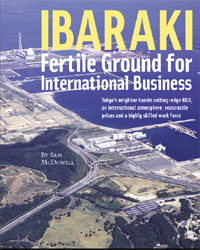 THERE HAS NEVER BEEN a better time than now for overseas companies looking to set up operations in Japan, especially for those looking beyond the major urban centers. Regional governments are devising new, more aggressive ways to attract investors to compensate for the outflow of local manufacturers to China and elsewhere.
THERE HAS NEVER BEEN a better time than now for overseas companies looking to set up operations in Japan, especially for those looking beyond the major urban centers. Regional governments are devising new, more aggressive ways to attract investors to compensate for the outflow of local manufacturers to China and elsewhere.
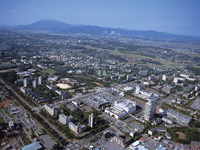 Bigger Savings
Bigger Savings
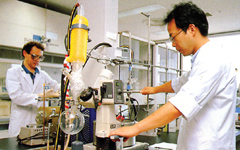 Highly Skilled Work Force
Highly Skilled Work Force
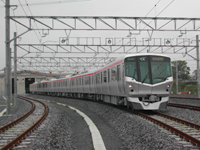 Excellent Location
Excellent Location
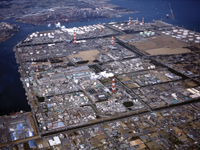 Nascent industries also have a strong foothold in the prefecture. For example, in the city of Hitachi, a group of small and midsize firms are working with the government and academia on a nanotechnology project. The group plans to produce tiny molds used for manufacturing large-capacity hard disks and other high-tech products. The government is supporting the project with JPY200 million in aid over three years, according to press reports. This and other forward-looking projects like it attest to the bright future of Ibaraki's business climate.
Nascent industries also have a strong foothold in the prefecture. For example, in the city of Hitachi, a group of small and midsize firms are working with the government and academia on a nanotechnology project. The group plans to produce tiny molds used for manufacturing large-capacity hard disks and other high-tech products. The government is supporting the project with JPY200 million in aid over three years, according to press reports. This and other forward-looking projects like it attest to the bright future of Ibaraki's business climate.
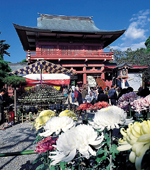 Quality of Life
Quality of Life
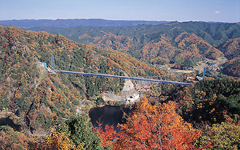 Finally, the Ibaraki International Association provides support for foreign individuals and businesses. It handles everything from legal consultation to advice about local events and activities.
Finally, the Ibaraki International Association provides support for foreign individuals and businesses. It handles everything from legal consultation to advice about local events and activities.



